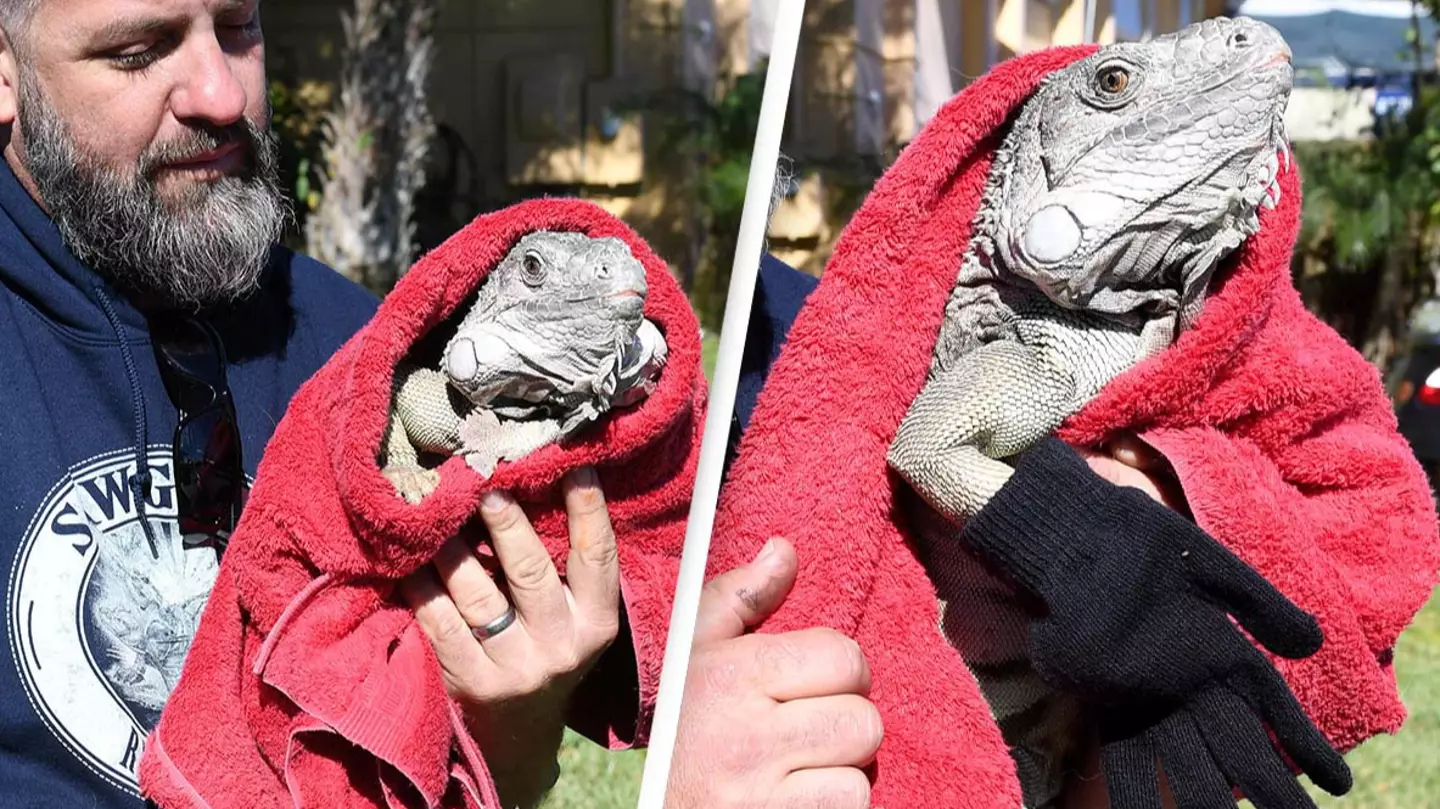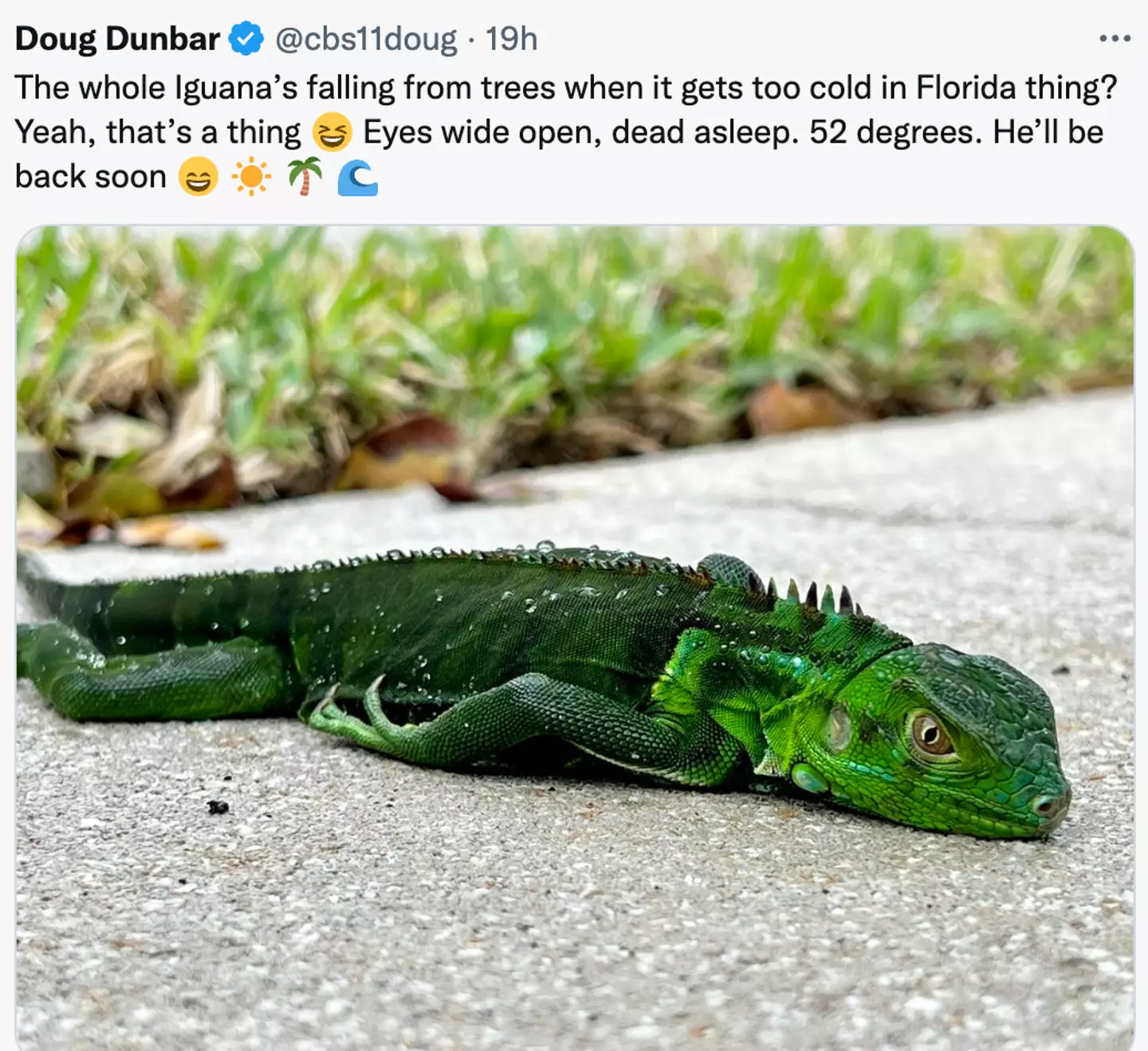
It's that time of year again! No, not Christmas - the time of year when giant lizards suddenly start to fall from trees in the United States. Obviously.
It might sound baffling to anyone who lives in an area where giant lizards aren't a common occurrence, and it probably even sounds a bit weird in the areas where they can be spotted roaming around, but that doesn't mean it doesn't happen.
Earlier this year, the US National Weather Service Miami-South Florida announced that iguanas in the region might be spotted falling from trees as temperatures dipped in January.

Advert
Now, as the US continues to be battered by a winter storm, the chances of seeing a falling iguana is on the rise - but the service has assured people in the area the lizards are 'not dead'.
The reason lizards can be seen falling from trees comes down to the fact they are cold-blooded. They're unable to generate their own body heat, and so rely on the environment around them to help stay warm.
While temperatures are typically at least moderate in Florida, on Christmas Eve many residents woke up to the first freezing temperatures seen in the state in almost a decade.
Such a cold snap can impact the iguanas' ability to stay warm and cause their joints to become stiff, making it more difficult for them to cling on to the branches of trees. As a result, they start to drop to the ground.
Jonathan Losos, an evolutionary biologist at Washington University, noted that iguanas aren't the only lizards known to fall from trees, the Daily Star reports, but explained: "They don’t get the publicity that a 5ft lizard does."

The cold-stunned reptiles go into a suspended animation kind of state, though the Florida Fish and Wildlife Conservation Commission has warned people not to take any of the immobile lizards into homes.
"Never take cold-stunned iguanas into your home! These are wild animals and may act defensively once they warm up and recover," the commission said.
According to Zoo Miami Communications Director Ron Magill, temperatures need to be below 10°C (50°F) for quite some time to slow an iguana considerably.
"Though there have been instances when temperatures have dropped low enough for an extended period of time where iguanas are stunned, it is not a regular occurrence," Magill told Fox News.
Magill has also explained that the number of iguanas dropping from trees is on the decline - not because there are fewer iguanas, but seemingly because the animals are adapting to the fluctuating temperatures.